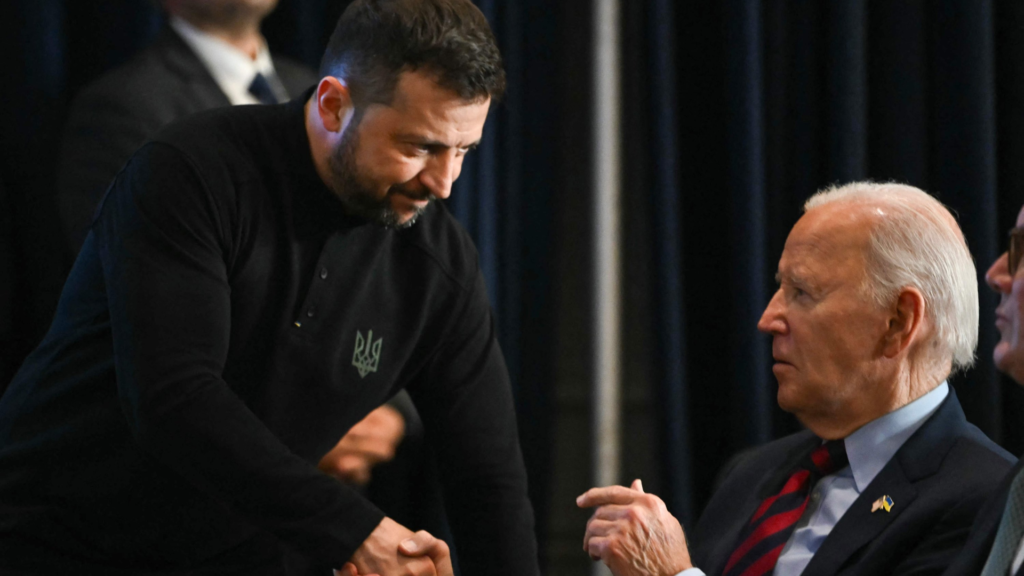
The United States will send nearly $1 billion in long-term weapons support to Ukraine, Defense Secretary Lloyd Austin announced on Saturday.
This move comes as the Biden administration races to utilize all remaining congressionally approved funds to bolster Ukraine’s defenses before President-elect Donald Trump assumes office next month.
The latest package includes additional drones and munitions for the High Mobility Artillery Rocket Systems (HIMARS) already provided to Ukraine.
While urgently needed, this support will be funded through the Ukraine Security Assistance Initiative (USAI), a program designed for longer-term investments in Ukraine’s military capabilities.
Unlike emergency aid drawn from Pentagon stockpiles, the USAI funds contract the production of weapon systems intended to enhance Ukraine’s future readiness, rather than deliver immediate battlefield reinforcements.
This $988 million commitment follows a separate $725 million military aid package announced earlier in the week, which included counter-drone systems and HIMARS munitions sourced from existing U.S. inventory for rapid deployment. Since the start of the war in February 2022, the U.S. has provided over $62 billion in military aid to Ukraine.
“The baton will soon be passed,” Austin said, referencing the upcoming change in administration. “Others will decide the course ahead. And I hope that they will build on the strength we have forged over the past four years.”
The Biden administration is working to ensure Ukraine is in a strong position before Trump, who has expressed skepticism about continued U.S. military support for Kyiv, takes office.
Biden officials aim to exhaust funds from a significant foreign aid package passed earlier this year to secure Ukraine’s strategic advantage.
Austin addressed the urgency during a speech at the Reagan National Defense Forum in California, emphasizing bipartisan congressional support for Ukraine. “This administration has made its choice. The next administration must make its own,” he stated.
Ukraine continues to face relentless attacks from Russia, now reportedly bolstered by thousands of North Korean troops. Moscow has intensified missile strikes on civilian infrastructure in Kyiv and launched intermediate-range ballistic missiles.
Amid these challenges, European leaders, including French President Emmanuel Macron, are urging Trump to sustain U.S. support for Ukraine.
Austin expressed confidence that American principles of security and freedom align with supporting Ukraine. “I am confident President Reagan would have stood on the side of Ukraine, American security, and human freedom,” he remarked.
As his tenure nears its end, Austin reflected on the accomplishments of the Ukraine Defense Contact Group, which he described as “the most consequential global coalition since President George H.W. Bush’s response to Iraq’s 1990 invasion of Kuwait.” The group, comprising over 50 countries, has coordinated the delivery of billions of dollars in weaponry and ammunition to Ukraine.
“Together, we have helped Ukraine survive an all-out assault by the largest military in Europe,” Austin said.
While the Biden administration continues to emphasize the importance of U.S. alliances and global leadership, the looming transition raises uncertainty about the future trajectory of U.S. support for Ukraine.

